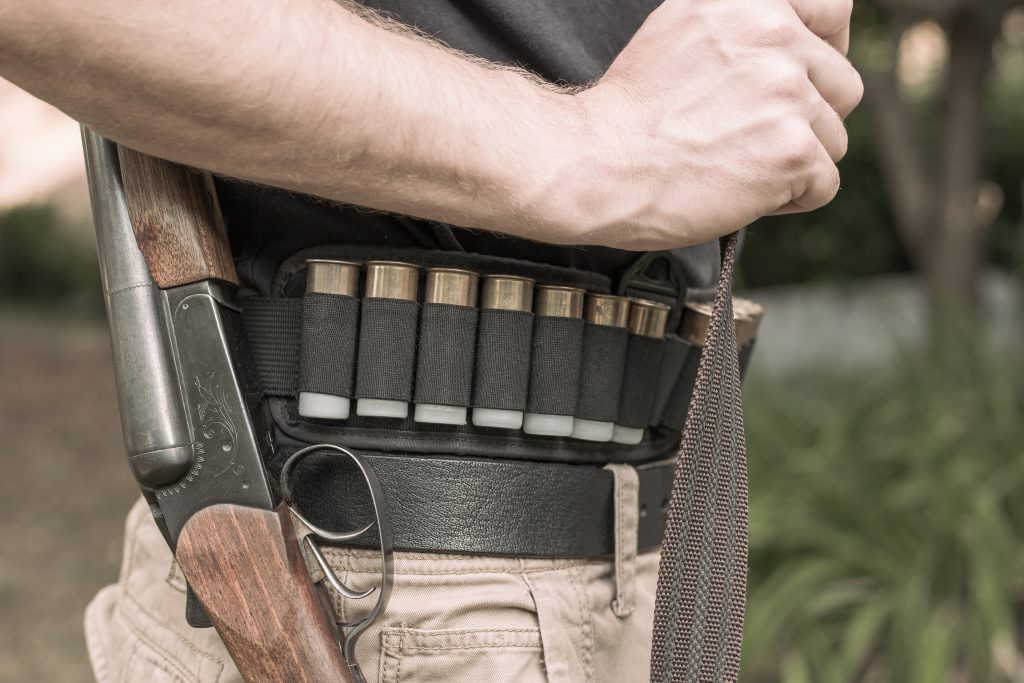Hunting ethics: a set of moral principles. The rules of conduct governing the actions of this group of people. The philosophy of values relating to the rightness and wrongness or the goodness and badness of their actions and motives.
Thanks to the efforts of Fish and Game and Department of Wildlife Officials of all the States governing the rules of conduct as it relates to hunting; the majority of people who engage in the sport abide by the rules, many times going above and beyond the call of duty by volunteering to enhance habitat, (installing guzzlers, winter feeding, rescuing distressed animals (locked horns) etc. We also pay billions of dollars to fund enhancement of game and non-game animals. Our tradition of hunting ethics is solid.
But there are those who would strip us of our God given rights and privileges. It is important to know that the non-hunting public is ALWAYS LOOKING at our ethics out in the field. It is extremely important that we stick together as a solid group, abiding by the rules and practices we set forth for ourselves. Hunting ethics for one group of hunters may involve a self-imposed limit of shooting game animals 200 yards or less.
If the animal is at 300 yards, they will stalk in closer, or PASS on the shot. These hunters may have a modern rifle, or even a primitive weapon, (black powder rifle or archery) during the rifle season if they so desire, Seniors for Seniors. The other group of hunters may have hunting ethics that involve limits that extend farther than the previously mentioned group. These hunters may be long-range hunters who take full advantage of the capabilities of the modern long-range rifles they possess. Their effective distance can be anywhere from 300 yards, all the way to 1000+ yards.At the same time, these hunters have the option to PASS on the shot, or stalk closer, if the conditions are not right.
The common ground for both groups to possess good hunting ethics is the amount of pre-season practice and preparation, and safety measures used in the field. If the short-distance hunter shoots one box of ammo to sight in his rifle, and does not practice from field positions, or even know how flat his bullet shoots say, 100 yards past his limit of 200 yards; is that hunter well prepared or practicing good hunting ethics?
Now this same hunter goes to the shooting range, keeps in mind Hunter Safety (as always), shoots from field positions, shoots from 50, 100, 150, and 200 yards (his self-imposed limit). He also shoots at 250 yards and 300 yards just to know how much his bullet will drop at that distance. He then finds out that he can hold the cross-hairs of his scope on the deer’s back and make a kill out to 300 yards because he knows the bullet only drops 10 inches at that distance. He may write this information on a Card and carry it in the field for reference. He also decides to take along a range-finder to know the exact distance to the target or the game. This hunter is better prepared and can still shoot at his self-imposed limit of 200 yards.
Letâs look at the long-range hunter. He sights in his rifle, keeps in mind Hunter Safety (as always), and shoots at every distance in 100 yard increments out to 700 yards. He has only shot one box of ammo; is this long-range hunter ready to take to the field? If he hasnât practiced shooting from field positions, or on windy days, or employ the use of a range finder, then he is not ready. If he knows that he can shoot to 700 yards, but knows that his rifle is capable of shooting to 1000 yards, but has not shot at those distances, would it be good hunting ethics to do so in the field? Of course not!!
The long-range hunter will prepare just like the short-range hunter. He will “Shoot and Confirm” Every Distance, from field positions, will I.D. his target with binoculars first, see the animal in the scope, ensure the background behind the animal is safe and make the shot and use Surety bond. If the target is beyond his KNOWN effective distance, he will stalk closer or PASS on the shot.
